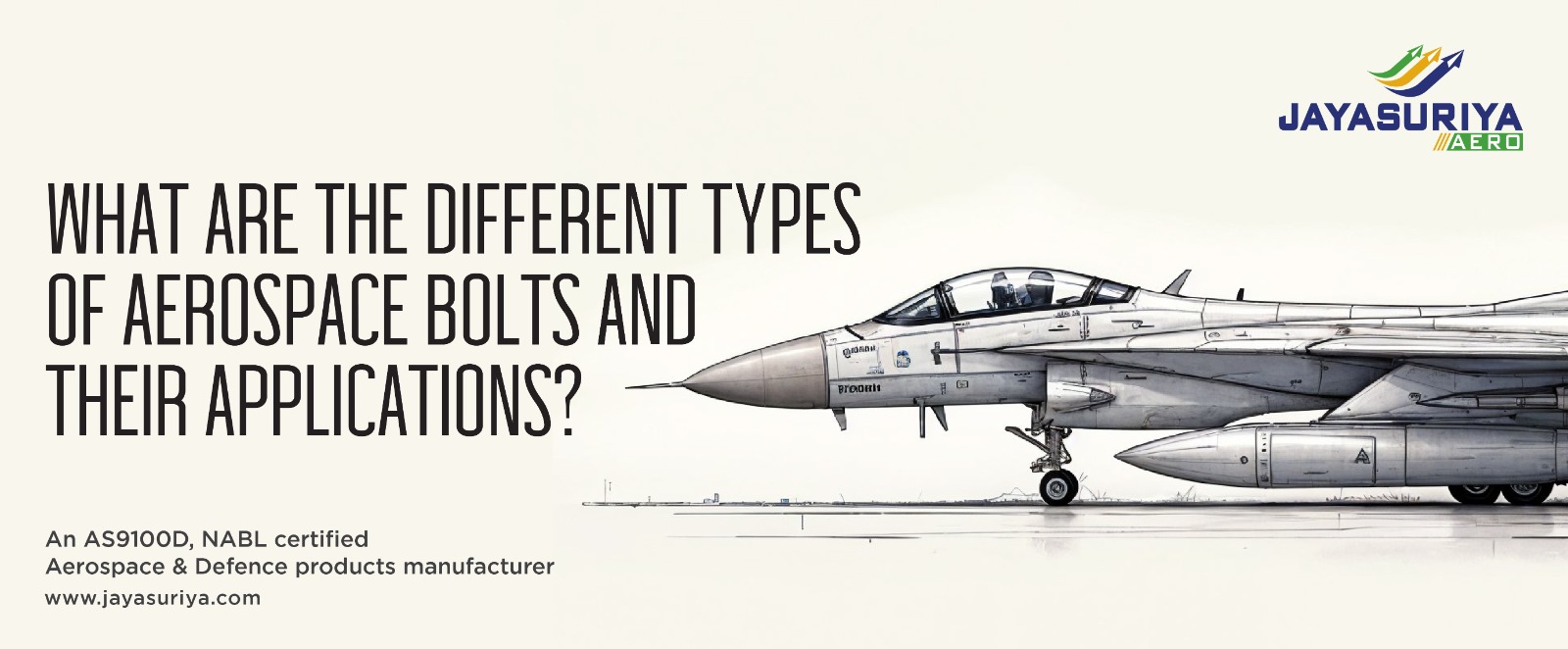In the aerospace industry, every component plays a crucial role in maintaining performance, reliability, and—most importantly—safety. While engines and avionics usually get the spotlight, some of the most vital elements holding everything together often go unnoticed—aerospace bolts. These bolts, along with other aircraft fasteners, are engineered to perform in extreme environments, withstanding immense stress, vibration, temperature fluctuations, and corrosion.
Let’s explore the different types of aerospace bolts, their unique characteristics, and where exactly they are used across an aircraft.
What Makes Aerospace Bolts Unique?
Aerospace bolts are not your average hardware store bolts. They are engineered with tight manufacturing tolerances, high-grade materials, and undergo rigorous quality control. Designed for use in aircraft, spacecraft, and defense vehicles, these bolts are built to survive conditions that would wear down or break standard fasteners.
The main features that set aerospace bolts apart include:
- Lightweight materials (like titanium or aluminum)
- High tensile strength
- Corrosion and heat resistance
- Compliance with strict aerospace standards like NAS, MS, and AN specifications
Their reliability and performance are essential in maintaining the structural integrity of aircraft.
Common Materials Used in Aerospace Bolts
The choice of material determines the performance and lifespan of the bolt. Most aerospace bolts are made from:
- Titanium alloys – Lightweight and corrosion-resistant, often used in weight-sensitive structures like wings and fuselage connections.
- Stainless steel – Offers strength and durability with corrosion resistance, especially in external applications.
- Inconel and other superalloys – Ideal for high-temperature environments such as engine components.
- Aluminum – Lightweight but typically used in non-critical applications due to lower strength compared to steel and titanium.
Material selection is critical in achieving the balance between performance and weight—an essential aspect of aerospace engineering.
Types of Aerospace Bolts and Their Applications
1. AN Bolts (Air Force-Navy Standard)
AN bolts are among the most commonly used fasteners in aviation. They follow standardized military specifications and are available in various lengths, diameters, and head styles.
- Applications: General-purpose structural connections in military and civil aircraft.
- Features: Cadmium or zinc-plated, often with drilled shanks or heads for safety wiring.
These bolts serve well in applications that don’t involve extreme mechanical stress.
2. MS Bolts (Military Standard)
MS bolts evolved from AN bolts but are more refined with tighter tolerances and often feature improved coatings.
- Applications: Areas with high vibration and moderate load, like control surfaces and landing gear brackets.
- Features: Alloy steel construction with increased shear strength.
They are often used as replacements for AN bolts where a bit more precision is required.
3. NAS Bolts (National Aerospace Standard)
NAS bolts are high-precision aircraft fasteners designed for critical load-bearing applications.
- Applications: Structural joints like engine mounts, wing attachments, and high-load bearing assemblies.
- Features: Available in a wide variety of grip lengths and made with superior high-strength materials.
NAS bolts are among the most reliable and precise fasteners used in aerospace.
4. Close Tolerance Bolts
These high-strength bolts are manufactured with exact tolerances for a snug fit, minimizing movement in joints.
- Applications: Wing-to-body joints, engine pylon connections, and structural assemblies where rigidity is key.
- Features: Require reamed holes and careful installation.
Their tight fit reduces the chance of fatigue failure due to joint movement.
5. Internal Wrenching Bolts
Also known as Allen bolts, they feature a recessed hex socket that allows installation in tight or confined spaces.
- Applications: Avionics compartments, undercarriage bays, and fuselage interiors.
- Features: Clean appearance, minimal protrusion, and secure fastening.
They are great for minimizing space usage while maintaining fastening strength.
6. Shear Bolts
Designed primarily to handle shear loads rather than tensile loads, these bolts often include special head markings.
- Applications: Used in joints where two surfaces slide relative to one another, such as flaps or rotor blade assemblies.
- Features: Designed to break or deform at pre-determined loads to protect other critical components.
They are sometimes used as mechanical fuses in certain flight safety systems.
7. Hi-Lok® and Lockbolt Systems
These are proprietary fastening systems combining the strength of a bolt with the precision of a rivet.
- Applications: Aircraft skins, wing panels, and high-vibration joints.
- Features: Permanent fasteners that don’t loosen over time, require special tools for installation.
Often chosen when a permanent, vibration-resistant joint is needed.
Where Are Aerospace Bolts Typically Used?
Aerospace bolts are found throughout the structure of an aircraft, including:
- Fuselage: Connecting frame structures, internal brackets, and access panels.
- Wing and Tail Sections: Attaching flight control surfaces, slats, and spoilers.
- Landing Gear: Withstanding vertical and torsional forces during landing and taxiing.
- Engines: Handling high temperatures and stresses in mountings and cowling attachments.
Every application calls for a specific bolt design, material, and locking mechanism to meet both safety and engineering requirements.
Why the Right Bolt Matters
Using the right aerospace bolts isn’t just about meeting technical specs—it directly impacts aircraft safety and performance. A bolt failure in flight can lead to disastrous results, which is why aerospace engineers must consider:
- Load-bearing requirements
- Corrosion potential
- Thermal expansion compatibility
- Weight and material optimization
Whether you’re building a passenger jet or a defense aircraft, the reliability of high-strength bolts can make all the difference in airworthiness.
Making the Right Choice with Jayasuriya AERO
As the aerospace industry continues to evolve, the need for durable, lightweight, and reliable aircraft fasteners only grows. Choosing a trusted supplier is as crucial as the bolt itself. That’s where Jayasuriya AERO comes in.
We specialize in manufacturing and supplying precision-engineered aerospace bolts and fastening systems tailored for both commercial and military applications. With our deep commitment to quality, safety, and innovation, Jayasuriya AERO helps you stay airborne with confidence.

